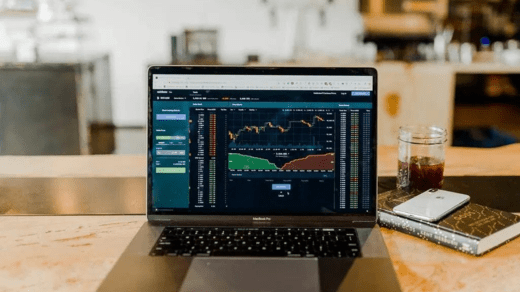
Learn to Trade Online
In today’s digital age, the world of finance has seen a significant shift towards online trading. The accessibility of the internet and advancements in technology have opened up vast opportunities for individuals to participate in financial markets from the comfort of their homes. Learning to trade online has become a skill sought after by many, as it allows individuals to take control of their finances and potentially generate additional income. In this article, we will explore the world of learn to trade online, its advantages, and the essential steps to get started on your journey to becoming a successful online trader.
What is Online Trading?
Online trading refers to the buying and selling of financial instruments through internet-based platforms. These instruments may include stocks, currencies (forex), commodities, cryptocurrencies, and more. The process eliminates the need for physical presence in traditional exchanges and brokerage houses, allowing traders to execute transactions with just a few clicks.
Advantages of Learning to Trade Online
Flexibility and Convenience
One of the primary benefits of online trading is the flexibility it offers. As long as you have an internet connection, you can access the markets and trade at any time of the day or night. This convenience allows individuals with busy schedules to participate in trading without disrupting their daily routines.
Access to Global Markets
Online trading platforms provide access to a wide range of global markets. As a trader, you can invest in assets from various countries and industries, diversifying your portfolio and spreading your risk.
Lower Costs and Fees
Compared to traditional brokerage services, online trading often involves lower costs and fees. With reduced overhead expenses, online brokers can offer competitive commission rates, enabling traders to keep more of their profits.
Learning Opportunities
Learning to trade online offers a wealth of knowledge and educational resources. Many online brokers provide educational materials, webinars, and tutorials to help beginners understand the fundamentals of trading and improve their skills.
Getting Started: Choosing a Trading Platform
The first step in learning to trade online is selecting a suitable trading platform. With numerous options available, it’s essential to research and compare platforms based on your specific needs and preferences.
Research and Compare Platforms
When evaluating trading platforms, consider factors such as the range of tradable assets, fees, user interface, customer support, and available tools for analysis.
Consider Security and Regulations
Ensure the chosen platform follows strict security measures and adheres to financial regulations. Look for platforms that implement encryption protocols to safeguard your personal and financial information.
Test the Platform with Demo Accounts
Before committing real funds, take advantage of demo accounts offered by many platforms. These accounts allow you to practice trading in a risk-free environment, familiarizing yourself with the platform’s features and functionalities.
Understanding Market Analysis
Successful trading requires a solid understanding of market analysis. There are two primary methods of analysis: fundamental analysis and technical analysis.
Fundamental Analysis
Fundamental analysis involves evaluating the intrinsic value of an asset by analyzing economic factors, financial statements, and industry trends. It helps traders make informed decisions based on the underlying fundamentals of an asset.
Technical Analysis
Technical analysis, on the other hand, relies on historical price data and charts to identify patterns and trends. It assists traders in making predictions about future price movements based on past market behavior.
Risk Management
As with any form of investment, trading carries inherent risks. Implementing effective risk management strategies is crucial to protect your capital and minimize potential losses.
Setting Stop-Loss Orders
A stop-loss order is a predetermined point at which a trader will exit a trade to limit losses. It ensures that emotions do not dictate trading decisions during volatile market conditions.
Diversification
Diversifying your trading portfolio involves spreading your investments across various assets and industries. This strategy reduces the impact of a single asset’s poor performance on your overall portfolio.
Managing Leverage
Leverage allows traders to control larger positions with a smaller amount of capital. While it can amplify profits, it also increases the risk of significant losses. Properly managing leverage is crucial for risk mitigation.
Developing a Trading Strategy
Formulating a well-defined trading strategy is essential for consistent and profitable trading results. A trading strategy should align with your financial goals and risk tolerance.
Define Goals and Risk Tolerance
Before executing any trades, set clear and achievable goals for your trading activities. Additionally, identify your risk tolerance level, which determines how much capital you are willing to risk on each trade.
Identify Trading Opportunities
Research and analyze potential trading opportunities based on your chosen analysis methods. Look for assets that align with your strategy and offer favorable risk-to-reward ratios.
Backtesting and Optimization
Test your trading strategy using historical data to evaluate its performance. Refine the strategy as needed to improve its effectiveness in different market conditions.
Emotions and Psychology in Trading
Trading can be emotionally challenging, especially during periods of high volatility. Controlling emotions is essential to avoid impulsive decisions that can lead to significant losses.
Overcoming Fear and Greed
Fear and greed are common emotions that can influence trading decisions. Traders must learn to remain calm and rational, even in the face of market fluctuations.
Staying Disciplined
Stick to your trading plan and avoid deviating from your strategy due to emotions or external influences. Discipline is crucial for consistent and successful trading.
Learning from Mistakes
Even experienced traders make mistakes. Learning from these mistakes is an essential part of improving your trading skills.
Analyzing Past Trades
Regularly review your past trades to identify patterns and areas for improvement. Learning from your mistakes can lead to more refined trading strategies.
Continuous Improvement
Stay updated with market trends and trading techniques. Embrace a learning mindset and continuously seek ways to enhance your trading abilities.
Resources for Learning to Trade Online
Numerous resources are available for aspiring online traders to enhance their knowledge and skills.
Online Courses and Webinars
Many platforms offer online courses and webinars conducted by experienced traders and industry experts.
Books and Ebooks
There are plenty of books and ebooks available on the subject of trading, covering a wide range of topics and strategies.
Trading Communities and Forums
Participating in online trading communities and forums allows traders to learn from each other’s experiences and share valuable insights.
Common Pitfalls to Avoid
Understanding common pitfalls can help you navigate the market more effectively and safeguard your investments.
Chasing Quick Profits
Avoid falling into the trap of chasing quick profits. Trading requires patience and discipline, and get-rich-quick schemes often lead to losses.
Ignoring Risk Management
Neglecting risk management can result in significant losses. Always prioritize risk management strategies to protect your capital.
Lack of Patience
Impatience can lead to hasty decisions that are not based on thorough analysis. Be patient and wait for the right trading opportunities.
Monitoring and Tracking Progress
Continuous monitoring of your trading activities is essential for identifying areas of improvement.
Keeping a Trading Journal
Maintain a trading journal to record your trades, strategies, and emotions. A journal helps you identify patterns and evaluate your progress over time.
Regular Assessments
Regularly assess your trading performance against your established goals and make adjustments as needed.
Learning to trade online can be a rewarding journey that empowers individuals to take control of their financial future. By understanding market analysis, implementing risk management strategies, and developing a well-defined trading plan, aspiring traders can increase their chances of success. Remember, trading requires dedication, continuous learning, and emotional discipline. Embrace the challenges, learn from your experiences, and keep refining your skills to unleash your full potential as an online trader.






